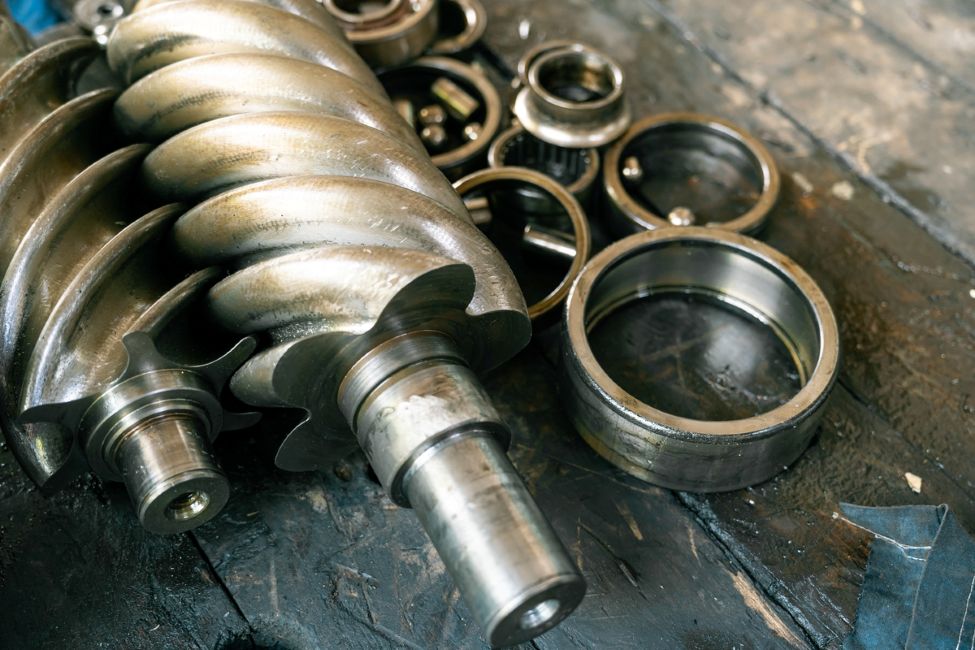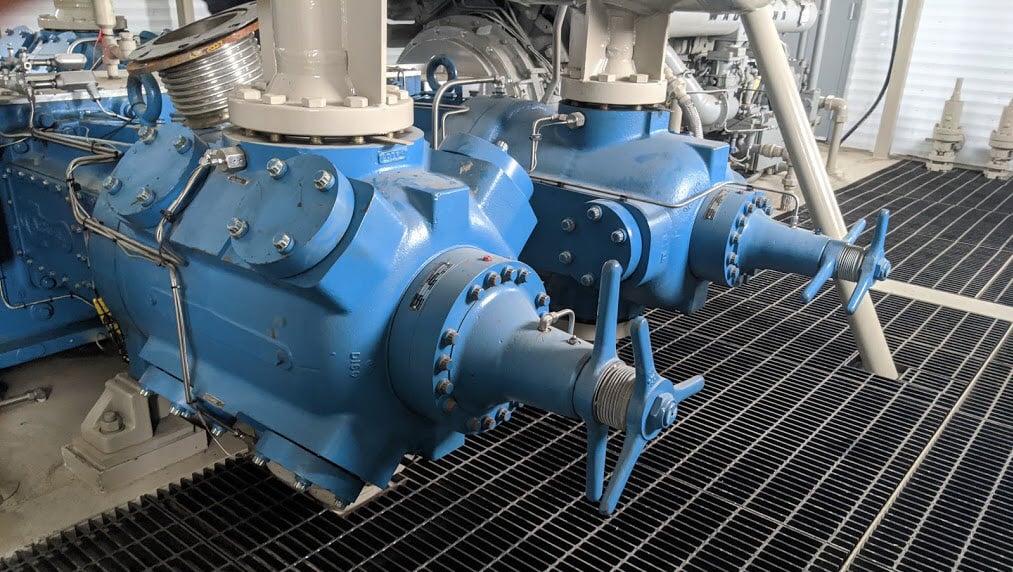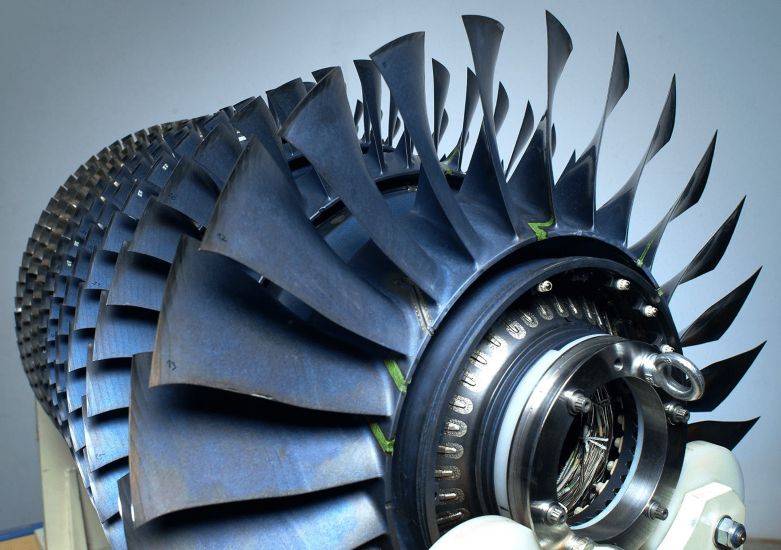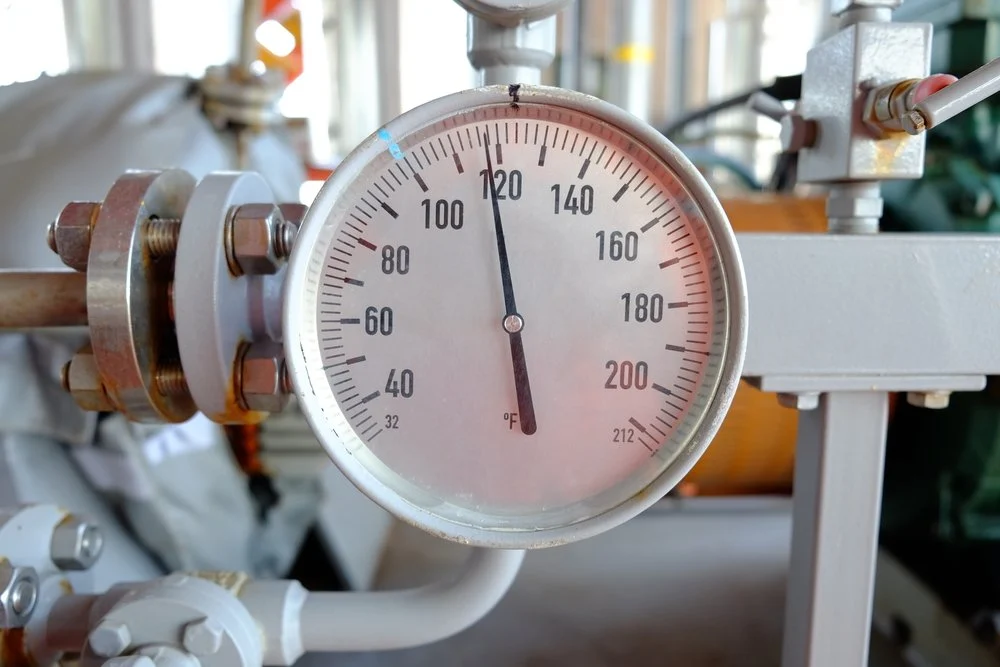Maintenance and Servicing Principles of Screw Compressors to Extend Lifespan
- Home
- Maintenance and Servicing Principles of Screw Compressors to Extend Lifespan

Screw compressors are among the most widely used industrial equipment due to their continuous operation, high efficiency, and low noise levels. However, one critical aspect often overlooked by operators and technical managers is the importance of regular maintenance and servicing. In this article, we’ll cover the essential principles that, if followed, can significantly extend the life of your screw compressor and help you avoid costly repairs and production downtime. So stay with Kamsan Iran to the end.
The Importance of Timely Servicing
Every industrial machine requires maintenance for optimal performance. Servicing a screw compressor not only improves its efficiency and reduces energy consumption, but also prevents serious damage to key components such as the rotor, bearings, and lubrication system. Regular maintenance helps minimize downtime and boosts productivity in industrial environments.
Scheduled Maintenance: The Key to Longevity
One of the most effective ways to increase the lifespan of a screw compressor is by implementing a scheduled maintenance plan. This typically includes three levels:
- Daily Maintenance:
Check operating pressure, air outlet temperature, inspect for leaks, and drain water from the tank and moisture separator. - Monthly Maintenance:
Replace the air filter, check oil levels, and clean external components. - Seasonal or Annual Maintenance:
Replace oil, inspect bearings, perform vibration testing, and check the function of control valves and the inverter (if applicable).
In harsh working conditions (e.g., high temperatures or dusty environments), maintenance intervals should be shortened.
Timely Oil Changes Matter
One of the most common causes of screw compressor failure is delayed oil changes. The specialized oil used in screw compressors plays a critical role in lubrication, cooling, and reducing wear. Depending on the type of oil (mineral or synthetic) and the operating environment, oil should typically be changed every 2,500 to 4,000 operating hours. Always use high-quality oils recommended by the manufacturer.
The Critical Role of Filters in Compressor Maintenance
Screw compressors usually include three main filters:
- Air Filter: Prevents dust and particles from entering the compressor.
- Oil Filter: Protects the lubrication system from contaminants.
- Oil-Air Separator: Separates oil from the compressed air.
During servicing, make sure these filters are clean or replaced. Dirty filters reduce efficiency and can cause abnormal pressure levels in the system.
Don’t Neglect the Cooling System
Most screw compressor failures stem from overheating. Ensure that fans, radiators, and air pathways are always clean and dust-free. During summer or in hot environments, check the operating temperature frequently and clean the cooling system more often.
Monitor with Built-In Software and Digital Displays
Many modern screw compressors come equipped with digital monitoring systems that display faults, operating hours, temperatures, and pressures. Regularly reviewing this data helps predict the best time for maintenance and prevents sudden breakdowns.
Use Only Genuine Spare Parts
Always use OEM (original equipment manufacturer) parts when servicing your screw compressor. Substandard filters, poor-quality oil, or counterfeit bearings can cause irreversible damage and significantly reduce compressor performance.
Operator Training: The Often-Forgotten Step
Training operators is a crucial yet often neglected part of proper maintenance. Operators should be able to recognize unusual sounds, pressure fluctuations, or rising temperatures—and take initial action or report issues promptly.
By following these best practices, you can greatly extend the life of your screw compressor, reduce repair costs, and ensure smooth and efficient operation in any industrial setting.
**Share this article**
Comments






